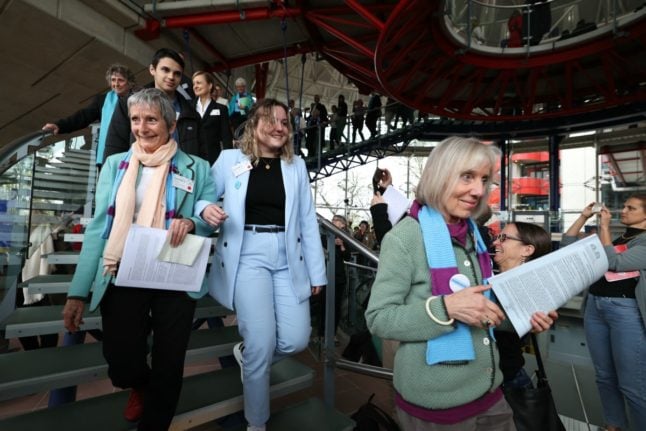The four women — university professor Julia Steinberger, lawyer Irene Wettstein, infectiologist Valerie d’Acremont and political scientist Bastienne Joerchel — had set off from Geneva on their “Marche Bleu”, or “Blue March”, on April 1.
The purpose of the march, which saw them make stops in a number of Swiss towns and cities, was to call on Switzerland to do more to adhere to the 2015 Paris Agreement.
In an online petition, they are demanding that the wealthy Alpine country “make it an absolute priority to reduce our greenhouse gas emissions by half before 2030 and to reach net zero by 2050”.
Dozens and sometimes hundreds of mostly women accompanied them on the different legs of their march, with around 150 people walking with them during the last part of the journey Saturday, the ATS news agency reported.
Nearly 4,000 people showed up to welcome them to Bern and to rally in the square in front of the Swiss government and parliament buildings, the news agency said.
“Our political demands are urgent,” Steinberger told the RTS broadcaster, lamenting that “Switzerland is very, very far behind, and has even gone backwards” on lists of how well countries are adhering to the Paris climate agreement.
“Climate action is everyone’s business.”



 Please whitelist us to continue reading.
Please whitelist us to continue reading.
Member comments